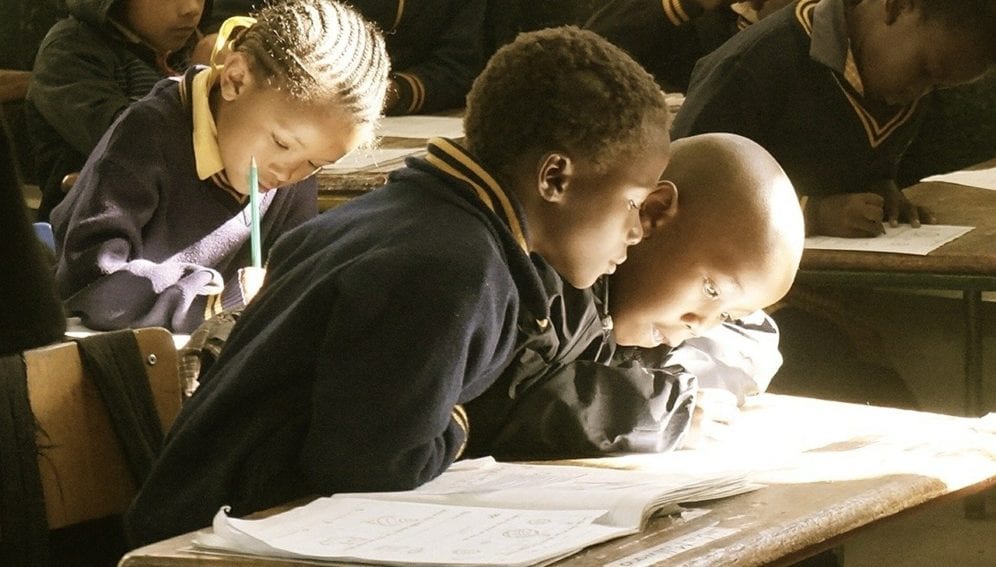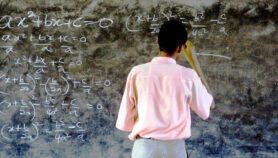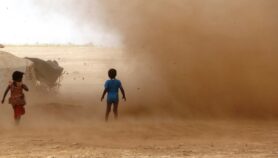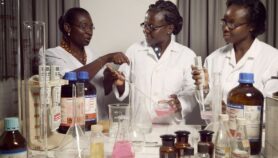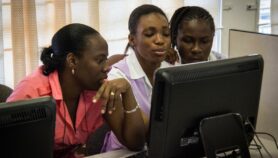By: Eldon Opiyo
Send to a friend
The details you provide on this page will not be used to send unsolicited email, and will not be sold to a 3rd party. See privacy policy.
[NAIROBI] Most Sub-Saharan African countries have failed to target vulnerable learners such as students with disabilities during the COVID-19 schools shutdown, exacerbating educational inequality in the region, a UN report says.
It comes as the world faces the “most unprecedented disruption in the history of education”, the UNESCO report says, with over 90 percent of students globally affected by school closures.
According to the UNESCO’s 2020 Global Education Monitoring Report released last week (23 June), about 40 per cent of low- and middle-income countries have not targeted learners at risk during the COVID-19 pandemic, widening inequalities.
“Even before COVID-19, one in five children, adolescents and youth were entirely excluded from education. Stigma, stereotypes and discrimination mean millions more are further alienated inside classrooms,” says Audrey Azoulay, director-general of UNESCO, in the report.
“The world is in the throes of the most unprecedented disruption in the history of education.”
Audrey Azoulay, UNESCO
“The current crisis will further perpetuate these different forms of exclusion. With more than 90 per cent of the global student population affected by COVID-19-related school closures, the world is in the throes of the most unprecedented disruption in the history of education. Social and digital divides have put the most disadvantaged at risk of learning losses and dropping out,” Azoulay adds.
The report calls on policymakers to re-think education and make schools more inclusive when they reopen.

Manos Antoninis, director of the Global Education Monitoring Report, says that the COVID-19 pandemic will worsen the expectation that that by 2050 over one in ten adults in Sub-Saharan Africa would not have completed primary school.
In 2015, all countries committed to achieving Sustainable Development Goal 4 of ensuring inclusive and equitable quality education and to promote lifelong learning opportunities for all by 2030. However, many countries are not clear what inclusion in education means and that motivated the compilation of the report, Antoninis adds.
He tells SciDev.Net that because of the pandemic, low- and middle-income countries are far more disadvantaged for an effective transition to online learning platforms.
According to Antoninis, even low-technology approaches have little chance of ensuring learning continuity. Among the poorest 20 per cent of households, the share of those who owned a radio was seven per cent in Ethiopia in 2016 and eight per cent in the Democratic Republic of the Congo in 2014. For Madagascar it was 14 per cent in 2016 and 30 per cent in Kenya by 2014,
“The recession caused by COVID-19 will affect public revenue-raising capacity and budget allocation given that the national wealth in high-income countries is likely to shrink with impact on overseas development aid,” says Antoninis. “We must call [on] donors to keep supporting these countries who, now, more than ever, are in need of their support. Education must remain high on the list of all policymakers’ priorities who want to build back more resilient and cohesive societies when the pandemic is over”.
An international team of research officers and policy analysts synthesised specialised literature and commissioned background papers from researchers and institutes around the world, with primary data coming from the UNESCO Institute for Statistics, which provides a wide range of education-related data including adult literacy and education expenditure.
This report, Antoninis says, needs to be taken seriously by key actors in Africa’s education including policymakers, teachers, civil society and leaders in education.
Beatrice Muganda, director, higher education programme at the Kenya-based Partnership for African Social and Governance Research, COVID-19 is making online learning the norm in Sub-Saharan Africa but many rural children are outside the digital grid and lack or share electronic equipment.
Muganda says that Africa governments must do more to guarantee access to and stability of power supply, especially in rural area, and partner telecommunication companies to expand access to online platforms, software and tools for online learning.“When large parts of society are not empowered to contribute to growth and productivity,” she explains, “economic growth and the social transformation of the recent past will come to a halt.”
This piece was produced by SciDev.Net’s Sub-Saharan Africa English desk.
References
2020 Global Education Monitoring Report (UNESCO, 23 June 2020)


